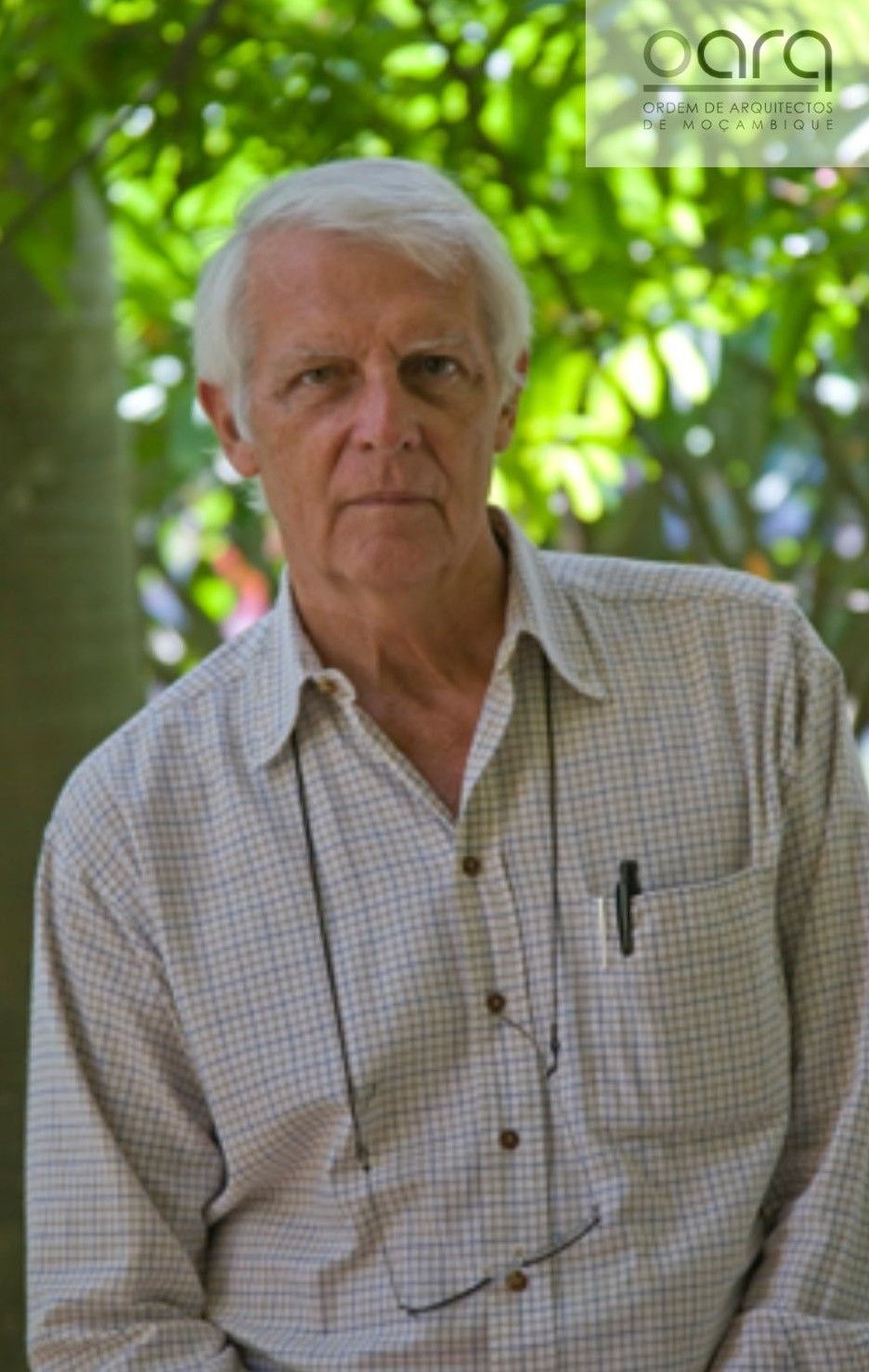It is with deep sadness that Docomomo Portugal communicates that the Portuguese architect José Forjaz passed away today, 25th June 2024. Docomomo Portugal wishes to convey the sincerest condolences at the passing of the renowned architect, to his family and friends.
Born in Coimbra in 1936, José Forjaz went to Mozambique in 1952, where he finished the secondary school. He then studied architecture at the Porto School of Fine Arts [Escola de Belas Artes do Porto]. He did his first work in Portugal at the beginning of the 1960s, leaving for a master’s degree at Columbia University in New York in 1966, after four years of military service in Portugal and Mozambique. He opened an architectural office in Swaziland in 1968, where he worked until 1975, when he returned to Mozambique and joined the transitional government and then the government of the independent country. Between 1961 and 1963, he joined the Federação das Caixas de Previdência and three years later he worked in the studio of Francisco Conceição Silva and Maurício de Vasconcellos. Further during the 1960s, he worked with Pancho Guedes, Fernando Mesquita, João Andresen, Octávio Lixa Filgueiras, Arnaldo Araújo, Bartolomeu Costa Cabral, and João José Tinoco.
In 1968, he settled in Swaziland and then in Mozambique in 19745 with his own architecture office José Forjaz Arquitectos. After independence, he became a consultant for the Ministry of Public Works in the area of Housing Planning (1975-1977) and between 1977 and 1983 he was National Director for Housing, responsible for Urban and Regional Planning. He held various public positions, namely, was Mozambique’s representative at the Habitat Conference in Vancouver (1978), at the UN HABITAT Focal Point (1979 to 1985) and at the UNEP Focal Point (1979 to 1985). Further he was Secretary of State for Physical Planning in the Government of Mozambique from 1983 to 1986.
Committed to the independence of Mozambique, Forjaz held there government and teaching positions in the field of architecture. He created and was head of the Faculty of Architecture and Physical Planning at Eduardo Mondlane University between 1990 and 2008.
Considering himself an “internationalist”, Forjaz affirmed that “our homeland is where we work. I’m a citizen of the world”. José Forjaz built a wide range of projects in Mozambique, including, in Maputo, the Secca Residence (1964), the Polana High-School (1970-1973) with João Tinoco, the Consolata Missionary Institute (1992-2000), the Auditorium and Chapel for CIRM Conferemo – Instituto Superior Maria Mãe de África (2000-03), the Torcato (1999-2003) and Paulino (2003) Houses and the “Caracol” Condominium (2004); the Cooperative Complex (1967) in Granja do Mamão; and the Student Residence in Nampula. In South Africa he built te emblematic Mbuzini monument (1998-99).
Along his life he was recognizes as Winner of “The Ralph Erskine Award” (Stockholm 1989), Professor Emeritus at Eduardo Mondlane University; Member of the Policy Advisory Board of the Cities Alliance (2006-09); Honorary Member of the Portuguese Order of Architects (2006); Extraordinary Honorary Member of the International Council of Portuguese-Speaking Architects-CIALP (2018); Medal of Veteran of the National Liberation Struggle, Mozambique; Commander of the Order of Italian Liberty; Medal of Cultural Merit of Mozambique (“Imbondeiro of Mozambican culture”).
A full note in Portuguese can be found at the website of the Portuguese Order of Architects: link.
more on his works on www.joseforjazarquitectos.com/





